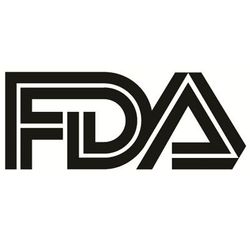
OR WAIT null SECS
FDA Announces Approval of Generics for ADHD in Younger Patients, Binge-Eating Disorder in Adults
These approvals of generics by the FDA can help to provide for patients with ADHD or BED the same clinical benefits as well as risks as the drugs’ brand-name counterparts.
The US Food and Drug Administration (FDA) announced its approval of various first generics of Vyvanse (lisdexamfetamine dimesylate) capsules and chewable tablets for moderate-to-severe binge-eating disorder (BED) in adult patients as well as attention-deficit/hyperactivity disorder (ADHD) in younger patients aged 6 years and older.1
ADHD is known to impact a large number of young people and children around the world, and stimulant medications are frequently used to treat ADHD. In fact, the number of those in the age range of 3 - 17 years diagnosed with the condition is estimated to be 6 million, using data drawn from the period between 2016 and 2019.2
BED is an eating disorder unique from bulimia and anorexia in which those facing this condition habitually consume unusually large levels of food and also report feeling unable to stop their eating habits.1 This can end up having an association with feelings of social isolation and embarrassment.
The new generic medicines for these conditions that are now approved by the FDA function in the same manner and allow for comparable clinical advantages and risks when compared to their branded counterparts.
The prescribing information of capsules as well as chewable tablets of lisdexamfetamine dimesylate maintain a boxed warning which alerts healthcare practitioners and patients about the possible abuse and dependency risks.
Treatments which are known to elevate certain chemicals in the human brain, like amphetamines and products which contain methylphenidate—including lisdexamfetamine dimesylate—have a substantial potential for misuse by patients, which can lead to addiction or even overdose.
The announcement by the FDA also included a statement recommending medical practitioners evaluate the possibility of drug abuse prior to their prescription of the generics. It also recommended that clinicians keep an eye out for signs of misuse as well as dependency at the time of treatment.
The FDA has—in response to regular worries about addictions, misuse, and overdose—recently mandated revisions to the labeling of such prescription stimulants to allow for the creation of standardized prescription data and to ensure evident awareness of such types of risk to patients, to caregivers, and to providers.
The generics’ prescribing information also includes information on precautions which are associated with severe cardiovascular reactions, peripheral vasculopathy, blood pressure and heart rate increases, adverse reactions known to be psychiatric, inhibition of growth, and serotonin syndrome. More comprehensive information on such reactions can be found with the complete prescribing information for Vyvanse.
Common side effects which have been reported in young people as well as adults who have ADHD and take lisdexamfetamine dimesylate capsules and chewable tablets included the following: anxiety, anorexia, diminished appetite, dizziness, weight loss, dry mouth, diarrhea, irritability, nausea, insomnia, discomfort for patients in their upper abdomen, and vomiting.
The FDA news also included a note that prevalent side effects for adult patients with BED include accelerated heart rate, insomnia, dry mouth, diminished appetite, constipation, a sensation of overall jitteriness, and also anxiety.
References
- FDA approves multiple generics of ADHD and BED treatment. FDA. Published August 28, 2023. Accessed August 28, 2023. https://www.fda.gov/drugs/news-events-human-drugs/fda-approves-multiple-generics-adhd-and-bed-treatment?utm_medium=email&utm_source=govdelivery.
- Data and Statistics About ADHD. CDC. Accessed August 28, 2023. https://www.cdc.gov/ncbddd/adhd/data.html.

